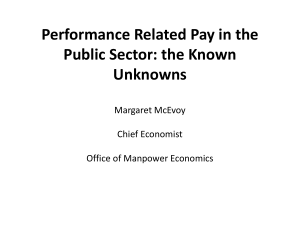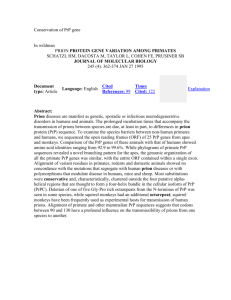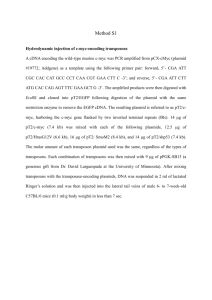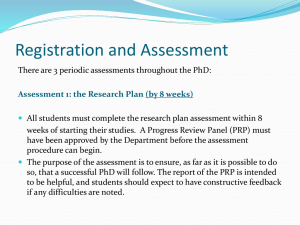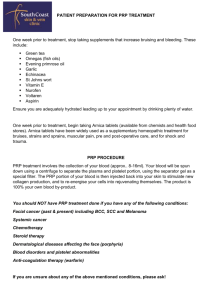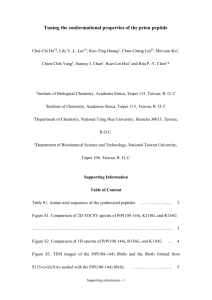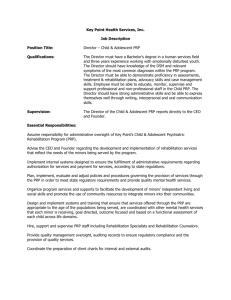EduFact document on PRP
advertisement
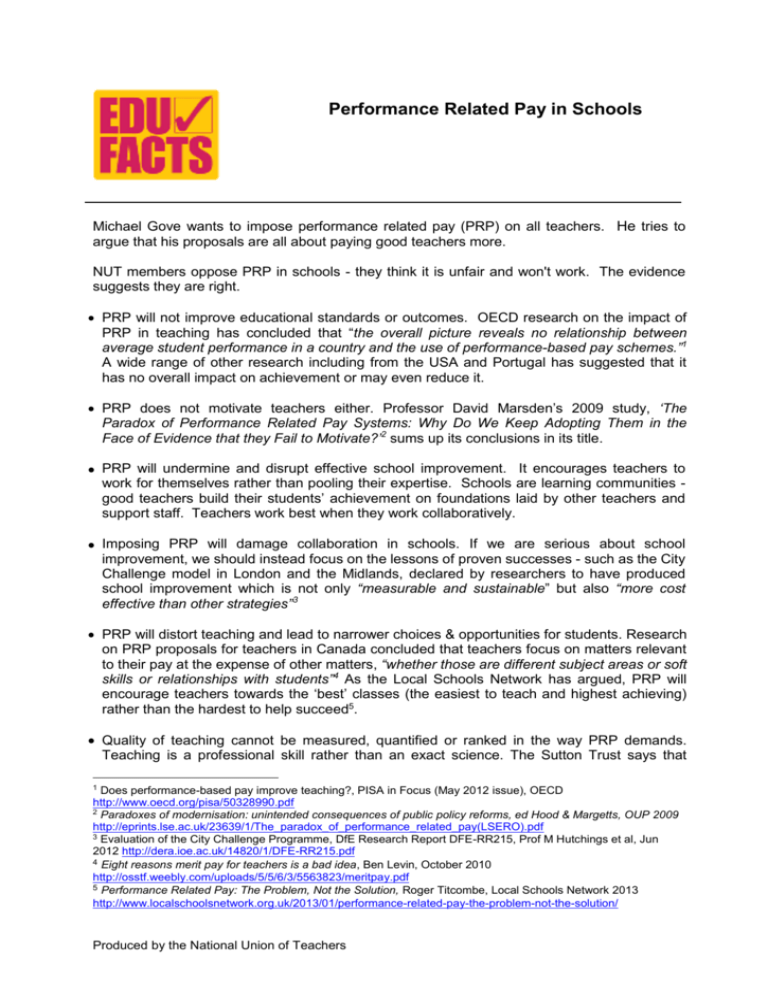
Performance Related Pay in Schools Michael Gove wants to impose performance related pay (PRP) on all teachers. He tries to argue that his proposals are all about paying good teachers more. NUT members oppose PRP in schools - they think it is unfair and won't work. The evidence suggests they are right. PRP will not improve educational standards or outcomes. OECD research on the impact of PRP in teaching has concluded that “the overall picture reveals no relationship between average student performance in a country and the use of performance-based pay schemes.”1 A wide range of other research including from the USA and Portugal has suggested that it has no overall impact on achievement or may even reduce it. PRP does not motivate teachers either. Professor David Marsden’s 2009 study, ‘The Paradox of Performance Related Pay Systems: Why Do We Keep Adopting Them in the Face of Evidence that they Fail to Motivate?’2 sums up its conclusions in its title. PRP will undermine and disrupt effective school improvement. It encourages teachers to work for themselves rather than pooling their expertise. Schools are learning communities good teachers build their students’ achievement on foundations laid by other teachers and support staff. Teachers work best when they work collaboratively. Imposing PRP will damage collaboration in schools. If we are serious about school improvement, we should instead focus on the lessons of proven successes - such as the City Challenge model in London and the Midlands, declared by researchers to have produced school improvement which is not only “measurable and sustainable” but also “more cost effective than other strategies”3 PRP will distort teaching and lead to narrower choices & opportunities for students. Research on PRP proposals for teachers in Canada concluded that teachers focus on matters relevant to their pay at the expense of other matters, “whether those are different subject areas or soft skills or relationships with students”4 As the Local Schools Network has argued, PRP will encourage teachers towards the ‘best’ classes (the easiest to teach and highest achieving) rather than the hardest to help succeed5. Quality of teaching cannot be measured, quantified or ranked in the way PRP demands. Teaching is a professional skill rather than an exact science. The Sutton Trust says that 1 Does performance-based pay improve teaching?, PISA in Focus (May 2012 issue), OECD http://www.oecd.org/pisa/50328990.pdf 2 Paradoxes of modernisation: unintended consequences of public policy reforms, ed Hood & Margetts, OUP 2009 http://eprints.lse.ac.uk/23639/1/The_paradox_of_performance_related_pay(LSERO).pdf 3 Evaluation of the City Challenge Programme, DfE Research Report DFE-RR215, Prof M Hutchings et al, Jun 2012 http://dera.ioe.ac.uk/14820/1/DFE-RR215.pdf 4 Eight reasons merit pay for teachers is a bad idea, Ben Levin, October 2010 http://osstf.weebly.com/uploads/5/5/6/3/5563823/meritpay.pdf 5 Performance Related Pay: The Problem, Not the Solution, Roger Titcombe, Local Schools Network 2013 http://www.localschoolsnetwork.org.uk/2013/01/performance-related-pay-the-problem-not-the-solution/ Produced by the National Union of Teachers schools should rely on a combination of approaches to gain a full picture of teacher effectiveness and should never assess teachers on data from a single year6. • PRP will make it harder to recruit new teachers and retain teachers in the profession. Over 90% of NUT members under 30 told us they think PRP will mean that graduates will in future be less likely to enter teaching. • PRP is an unnecessary and bureaucratic burden. School leaders and governors will find themselves involved in lengthy discussions and time consuming appeals - diverting time away from the key challenges of securing improvements in teaching and learning. • PRP will turn Ofsted into the Government’s pay police. Ofsted inspectors are expected to ask school leaders to justify pay progression decisions. This will undermine the already tenuous trust between schools and Ofsted - and school leaders are bound to be tempted into failing a quota of teachers for self-protection purposes. • PRP will lead to discriminatory outcomes. It is well known that PRP favours men not women, while evidence from the performance threshold system in schools showed that black and minority ethnic teachers were disproportionately likely to fail to progress. The Government is promoting pay practices which will lead to further discrimination against older teachers, women teachers and black minority ethnic teachers alike. • PRP will not lead to "the best teachers being paid more". Pressures on school funding mean faster pay progression for some will only happen at the expense of others. In schools where every teacher is performing well, that will make no sense at all. • Finally, teachers reject PRP, whatever the Government and its supporters say. Over 90% of NUT members have told us that they reject linking pay to performance, seeing it as arbitrary, unfair and unlikely to motivate or raise outcomes for students. Even studies carried out by PRP’s proponents confirm teachers' opposition to PRP. What does work is paying all teachers better. Another study looking across OECD countries in 2011 concluded both that “higher pay leads to improved pupil performance” and that the highest performing countries have well paid teachers whose status in society is high. We won’t achieve this by focusing on PRP for the few. PRP in teaching will not help raise standards. It will undermine professional co-operation and hamper school improvement. It will be unfair, promote inequality and make pay determination costlier and more bureaucratic. It is actually all about cutting the pay bill for teachers - which is why the NUT continues to oppose it. 6 Testing Teachers: what works best for teacher evaluation and appraisal, Sutton Trust, March 2013 http://www.suttontrust.com/news/publications/testing-teachers-what-works-best-for-teacher-evaluation/ Produced by the National Union of Teachers
